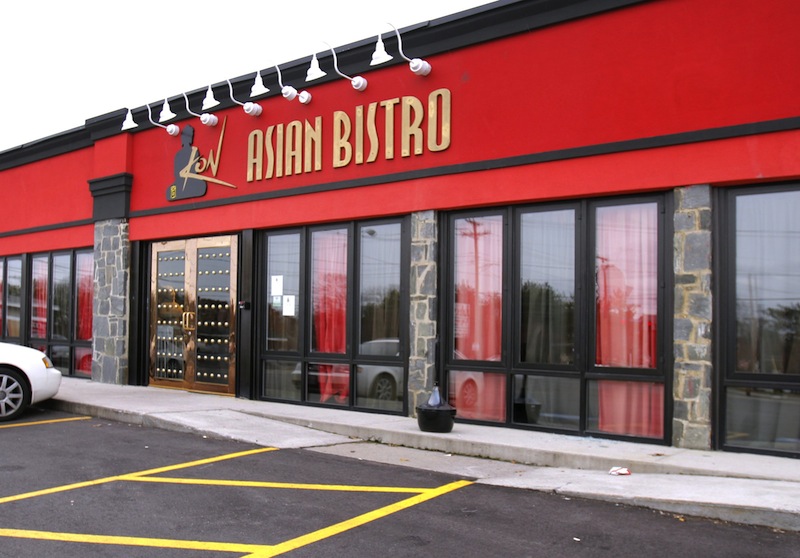PORTLAND – The head of the Maine Restaurant Association and local restaurant owners say that new, higher standards set by the city’s health inspector are causing many of them to fail health inspections.
Portland officials, however, say they have not raised the bar and that most of the inspections done recently were in response to complaints and new businesses opening.
In the past year, the city failed 39 of the 49 eateries it inspected because of health code violations, according to records provided to the Portland Press Herald this week in response to a Freedom of Access request. It is difficult to compare that rate to previous years because of limitations in the city’s recordkeeping.
“The food code hasn’t changed, so what has?” asked Dick Grotton, the association’s president and chief executive officer. “The inspection process has changed.”
In August 2011, the city hired its first health inspector devoted to restaurants. Before that, code officers in the Planning Department conducted the inspections.
The change has led to a new interpretation of the food code, Grotton insisted.
“It doesn’t mean it’s wrong,” he said. “It’s different. We need to catch up, and it’s going to take time.”
Grotton said Portland restaurants, many of which are in old buildings, are being cited for facility issues, such as not having a covered trash recetacle in the ladies room.
Instead of focusing on what are considered non-critical violations, he said, the city should concentrate on critical violations that could lead to illness.
“There are degrees of bad,” he said. “We need to separate what’s really important and what’s just part of the code.”
Michele Sturgeon, the health inspector, was not available for comment Friday. She has been directed to refer all media inquiries to her supervisors.
Douglas Gardner, Portland’s director of health and human services, said the inspection process is no more stringent than when it was located in the Planning Department.
“I don’t think it’s a function of being stricter,” Gardner said. “I really think the failure rate we’re seeing is driven by the types of inspections we’re doing.”
Gardner said Sturgeon has focused on investigating complaints made against restaurants and inspecting new establishments as well as those under new ownership so they can open. A review of the records shows that 16 of her first 49 inspections had been based on complaints, and 20 had been based on a change in ownership or the opening of a new restaurant.
Gardner said the city also switched to a pass-fail grading system, rather than a scoring system based on a 100-point scale, when Sturgeon came on board. That could also be contributing to the failure rate, he said.
“I don’t feel that (failure rate) is a representative example of the 700 or so other restaurants in the community,” Gardner said.
A restaurant can have as many as 13 violations, including three or fewer critical, and pass inspection. A critical violation is defined as one likely to pose a risk for contamination or illness or is an imminent health risk. A restaurant with more than 13 violations fails but may stay open if enough violations can be corrected immediately. If they can’t, the restaurant is deemed a health hazard and shut.
The city has closed five businesses in the past several months for health violations: Passage to India, Buffalo Wings-N-Things, and three that share a kitchen on Custom House Wharf — the Porthole, Comedy Connection and Harbour’s Edge banquet hall. All but Buffalo Wings-N-Things have reopened.
Jason Loring, chef and co-owner of Nosh — which failed an inspection last year and apparently never had a follow-up visit, as required — said he thinks the city is paying closer attention to restaurants. When code officers did inspections, he said, they would only last five minutes. The last inspection lasted nearly an hour.
“I definitely think they’re holding us to higher standards, because they’re actually doing inspections now, where before they weren’t really doing them,” Loring said. “I don’t really have a problem with it. It’s all about safety.”
Restaurants that failed at least one inspection over the last year run the gamut from diners to gourmet. Burger King on Forest Avenue was inspected because of a complaint last September, but the restaurant passed its inspection.
Two Dunkin’ Donuts stores also passed their inspection, as did Five Guys Burgers on Fore Street, which was inspected based on a complaint that could not be substantiated.
Five Guys general manager Jaci Rubchinuk said cleanliness is vital to the store brand. A third-party service inspects each restaurant on a quarterly basis, she said. Franchises that pass inspection receive incentives, while those that fail are shamed.
“Your score gets immediately emailed to every other Five Guys,” she said. “If you don’t do well, everyone knows and it’s horrible and humiliating.”
Petite Jacqueline, a bistro nominated for a coveted James Beard award, was inspected Jan. 26 after several people complained about getting sick after eating there. Sturgeon failed the restaurant, finding 26 violations, including refrigeration issues, broken cutting boards and utensils stored in standing water. On Feb. 16, she failed it again.
Liz Koenigsberg, part-owner and acting general manager, said Petite Jacqueline has made the necessary changes listed in its report. Despite failing a second time, there is no record of a third inspection.
“We do feel (Sturgeon) is taking a harder path than her predecessors,” Koenigsberg said. “We feel this is beneficial to the city, especially moving forward. But it does pose a challenge on a day-to-day basis for restaurants that have been around for years.”
The Otto’s Pizza location at 576 Congress St. was inspected after someone complained that an employee’s sweat dripped into the dough and that cooked pizzas were left out on the counter near customers with no sneeze guard.
Otto’s failed its inspection with 27 violations. But the shop passed a follow-up inspection nearly a month later with eight violations. Repeat violations included a door that was propped open, uncovered pizzas, improper utensil storage and flies.
Otto’s spokesman Frank Gallagher said he doesn’t believe the inspection process has become any stricter. He said that all issues cited in the inspection report have been taken care of.
“My understanding is that everything is up to par,” he said.
Kon Asian Bistro on Brighton Avenue failed its Jan. 24 inspection with 31 violations, including 14 that were critical. The five-page report notes the restaurant is being treated monthly for mice and rats. Kon failed a follow-up inspection the next day with 13 violations.
Kon manager Chris Chan said no one has complained about getting sick from eating at the restaurant. He said Sturgeon is setting a higher standard than previous inspectors.
“We will cooperate with the city,” Chan said. “Whatever they want us to do, we will try our best.”
Staff Writer Randy Billings can be contacted at 791-6346 or at:
rbillings@mainetoday.com
Twitter: @randybilling
CORRECTION: This story was updated Monday Sept. 24 to reflect that DiMillo’s passed its restaurant inspection.
Send questions/comments to the editors.





Comments are no longer available on this story